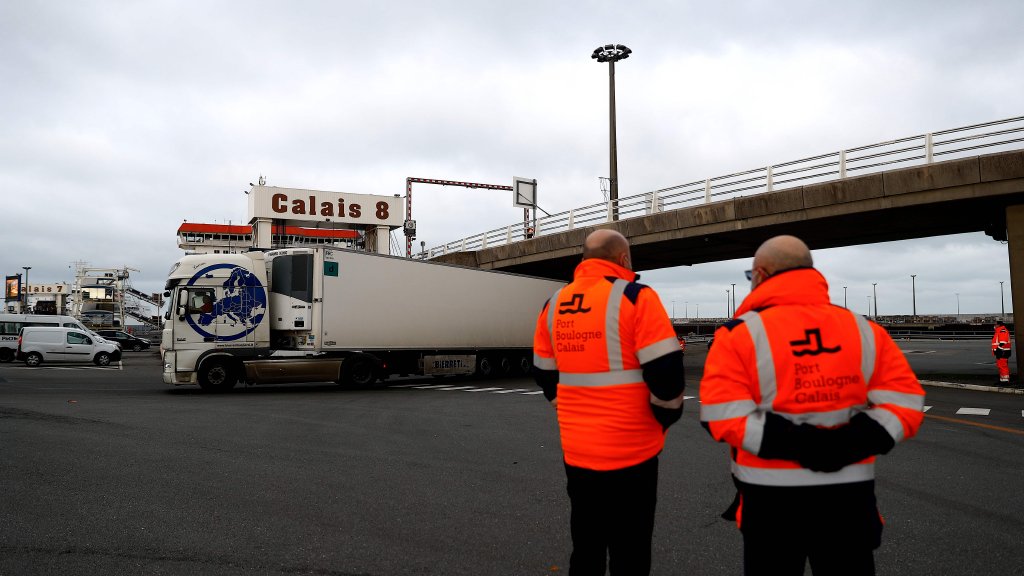The first crossings via Eurotunnel following Brexit at midnight on Thursday passed off without a hitch, according to Getlink, the company that operates the tunnel.
The new formalities came into force at midnight on Thursday for haulage traffic travelling in both directions. According to Getlink, all lorries managed to deal successfully with new new paperwork, and make the crossing on time.
The same was expected to be the case later on Friday morning, when the first lorries crossing by ferry arrived.
In Calais docks, the first ferry to arrive was the P&O Ferries vessel Pride of Kent carrying 36 trucks from Dover. Three of the vehicles were taken aside for additional inspection, while the other passed unhindered.
The French authorities have installed a kind of pre-check-in system that allows lorries to complete the customs procedures in advance, as which point they are given either the right to pass freely or are asked to move to one side for additional inspection.
The two French ports Calais and Dunkirk account for 70% of all freight traffic between the UK and the EU, dealing with 12,000 trucks a day as well as 60,000 passengers.
On Friday itself, some ferry crossings were cancelled due to lack of demand. In many cases, haulage companies had attempted to avoid the forecast long queues at Channel ports by turning up early, which only worked to advance the problem. Those crossings having been made at the last pre-Brexit minute, the pressure was off once Brexit became a reality.
But whatever the situation at change-over, the effects of Brexit will be felt by exporters and importers on both sides of the Channel.
Speaking to De Tijd, trader Dominiek Noppe of fruit and vegetable exporter Vergro described the extra red tape his business and his clients now have to deal with.
“Before Brexit, things were fairly simple,” he said. “We prepared the pallets with the products and filled out a bill of lading – a delivery note and an invoice. We put the cargo in the truck, drove to the port, put the truck on the ship and delivered the products to our UK customer. He received the invoice and paid.”
Now, however, things are very different, for Vergro and for their customers.
“On the export document we have to provide a lot of details about the products we ship. Which products are involved, how many tonnes we are sending, where the products come from and what price we sell them at. Our British customer must also enter this information on his import document. To get all that in order, we have to exchange a lot of information with each other. None of that was necessary in the past.”
On top of that, the shipment needs a clearance from the federal food safety agency, and another from customs. And every palette has now to meet the standards imposed by the UK. The cost of all that red tape is not minimal.
“To make up one import and export document, we have to pay €200. So if one container contains loads for five customers, we have to pay €1,000 extra.”
Added to that, costs can increase further due to traffic jams at the borders and because hauliers now charge more for their journeys.
“In addition, we will probably also have to hire more people to take care of the extra administration,” Noppe said.
Alan Hope
The Brussels Times

